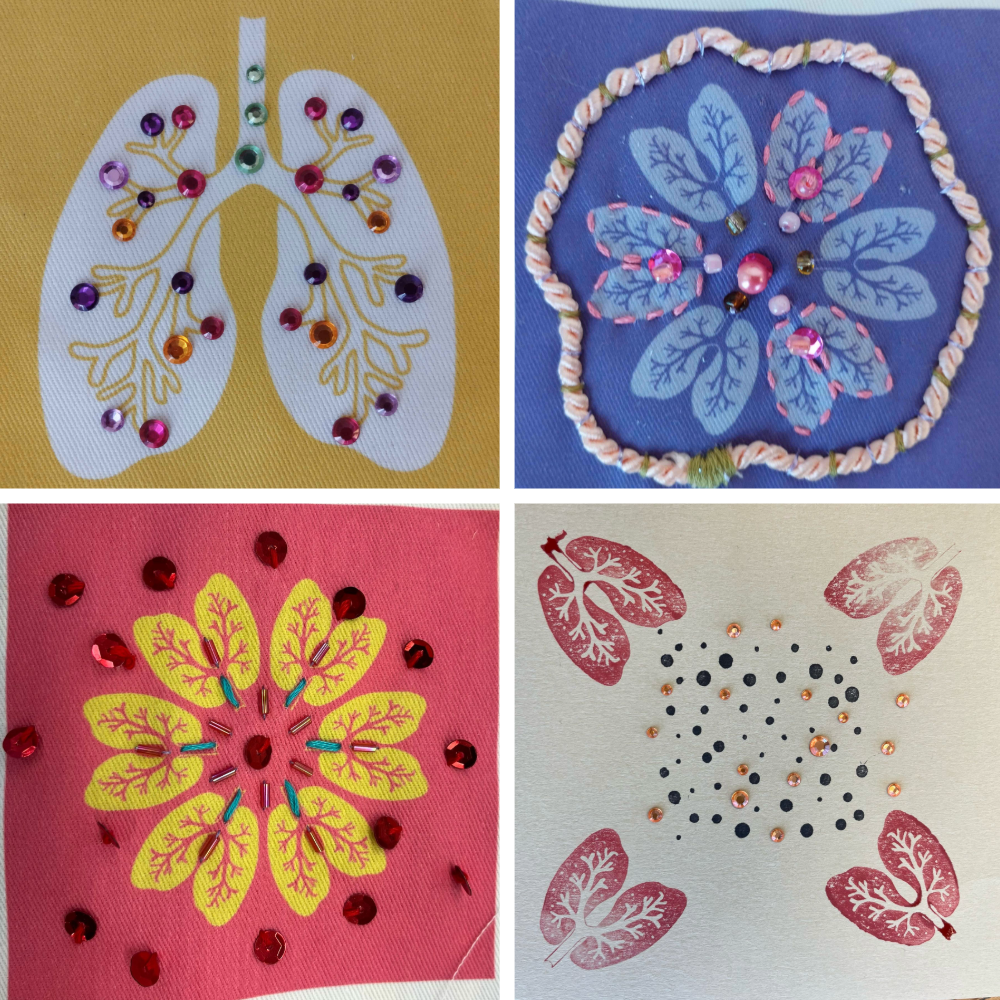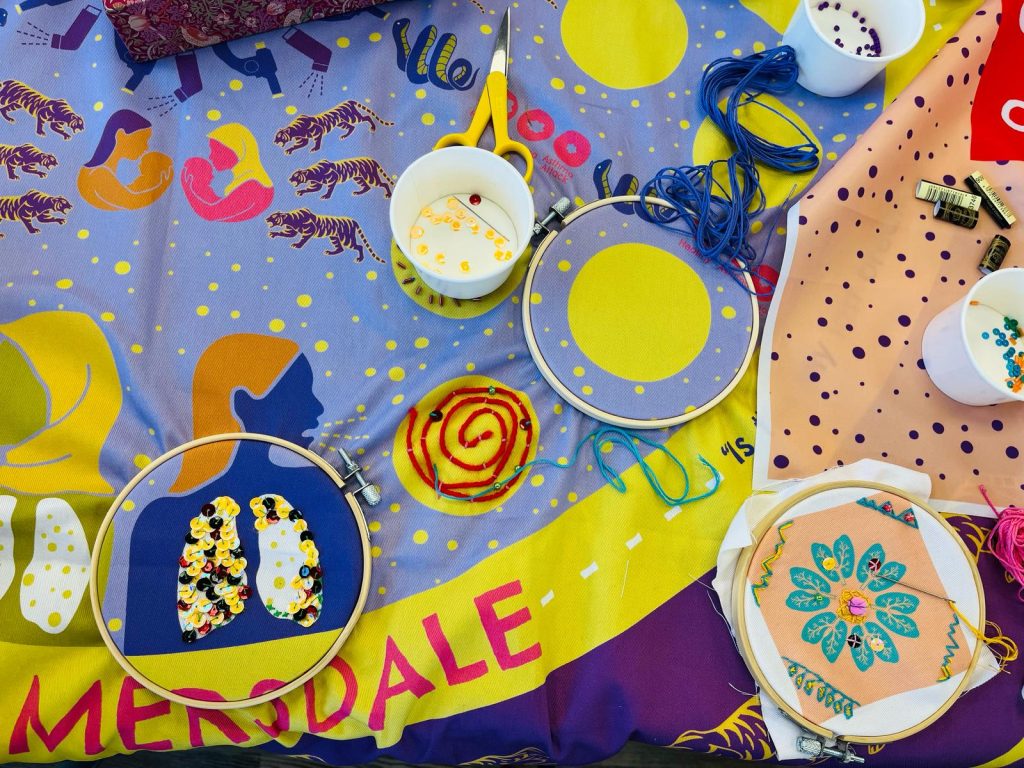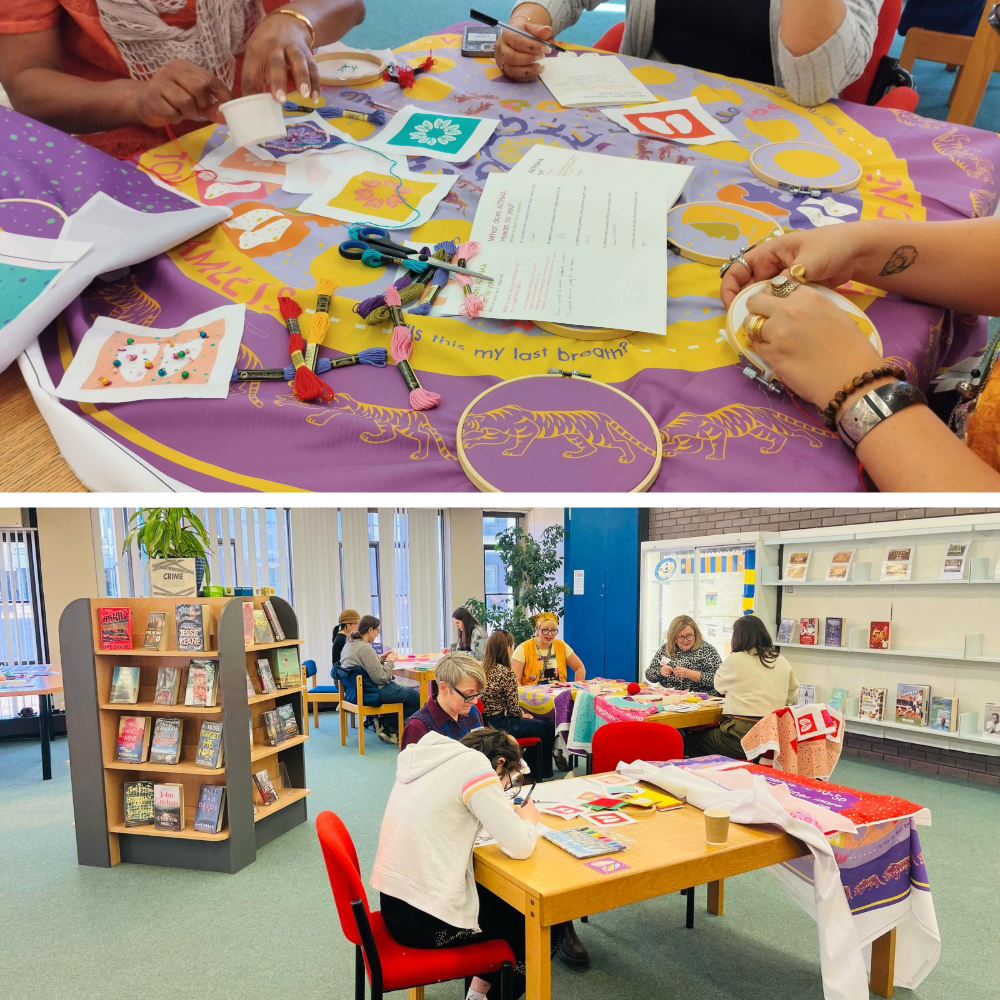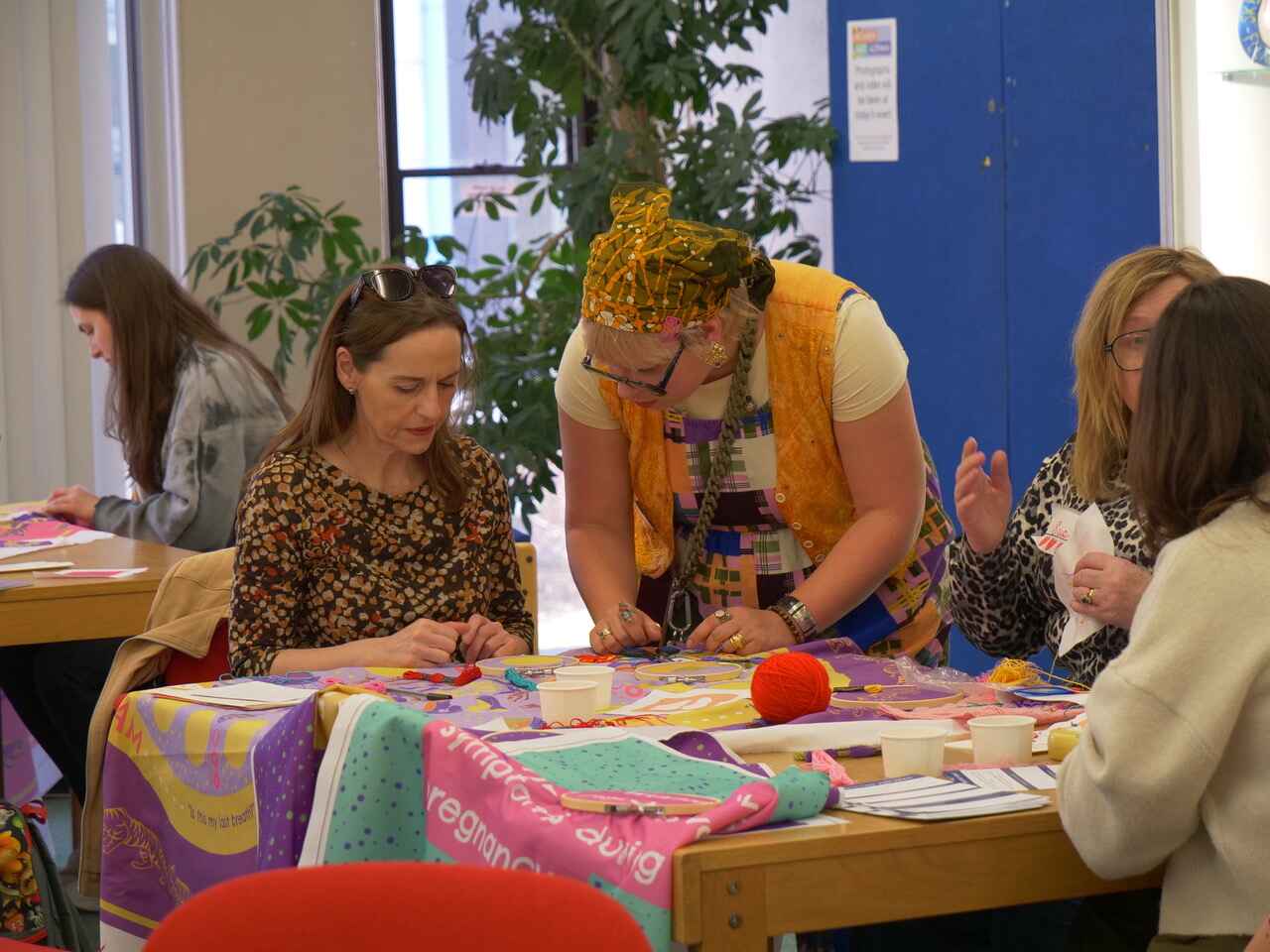Written by Dara O’Hare
Picture the scene. A library in rural Lancashire. Beads, baubles and braids. Sequins, stamps and silks. Children drawing and colouring in. Women sewing and sharing stories.
It’s perhaps not the archetypal work setting for an Imperial lab team but on International Women’s Day (Saturday 8 March) that’s where you would have found Professor Clare Lloyd, director of The Lloyd Lab, and members of her team – research manager Dr Laura Yates and PhD student Minerva Garcia Martin – deep in conversation with local women and children, while stitching and sewing.
The Lloyd Lab explores the interactions between resident lung cells and infiltrating inflammatory cells in order to establish how these interactions influence the development and resolution of pulmonary inflammation during a range of different lung diseases, including asthma.
As part of that work, and thanks to a Wellcome public engagement award, the researchers have teamed up with three craft organisations – Craftspace in Birmingham, Stitches in Time in Tower Hamlets (London) and The Sewing Rooms in Skelmersdale (Lancashire) – to explore the topic of women and asthma through the media of craft and storytelling.

The project, entitled Women and Asthma, has been in train for two years under the expert stewardship of Ellen Dowell, creative producer of public engagement at Imperial’s National Heart and Lung Institute. However, International Women’s Day marked the fitting start to a year-long series of public events during which the researchers, women with lived experience of asthma, asthma nurses and other healthcare professionals will come together to swap stories – about living with asthma or researching effective treatments for it – while edging and embellishing.
Using craft as a common language to share stories and experiences is providing a rich seam of material about asthma and deepening understanding and awareness of the relationship between women and asthma.
Part of the inspiration for the project came from the 2022 Asthma + Lung UK report Asthma is Worse for Women which highlights that some three million women in the UK – more than the population of Birmingham – have asthma. That asthma is more common and more severe in women than men, and more likely to result in hospitalisation or death. And that many asthmatic women experience changes to their symptoms during times of hormonal change (periods, pregnancy, menopause, hormone treatment).

The next workshop will take place in the Idea Store, Watney Market (London) on World Health Day (Monday 7 April), followed by one in the Library of Birmingham on 3 May, ahead of World Asthma Day on 6 May. The culmination of these events will be the creation of a large-scale art installation – incorporating items made by the women at the workshops – which will visit Tower Hamlets, Birmingham and Skelmersdale in September this year on key dates linked to International Day of Clean Air, World Lung Day and the NHS’s Ask About Asthma campaign.
Speaking about the Skelmersdale event, Professor Lloyd said:
‘As lab-based researchers we’re keen to develop better treatments for asthma and face-to-face interactions put everything in context. And seeing my students who are creative scientifically creating beautiful crafts has been eye-opening and fun. Overall, it is rewarding for us as researchers but also for the public, who have an opportunity to share their stories.’
PhD student Minerva Garcia Marin added:
‘I study cell interactions in asthma and through this project I have interacted with lived-experience participants, learning directly from them about their experiences with asthma. It’s inspiring to see how sharing their stories has empowered them and sheds light on how isolating this condition can be. For some, discussing asthma is deeply personal and challenging, but engaging in conversations through crafting has helped create a comfortable space in which to share their stories. Crafting is a great tool that has also allowed me to share details of my PhD project and the research we are doing.’

Follow the project on Instagram at @womenandasthma or at www.womenandasthma.net.
